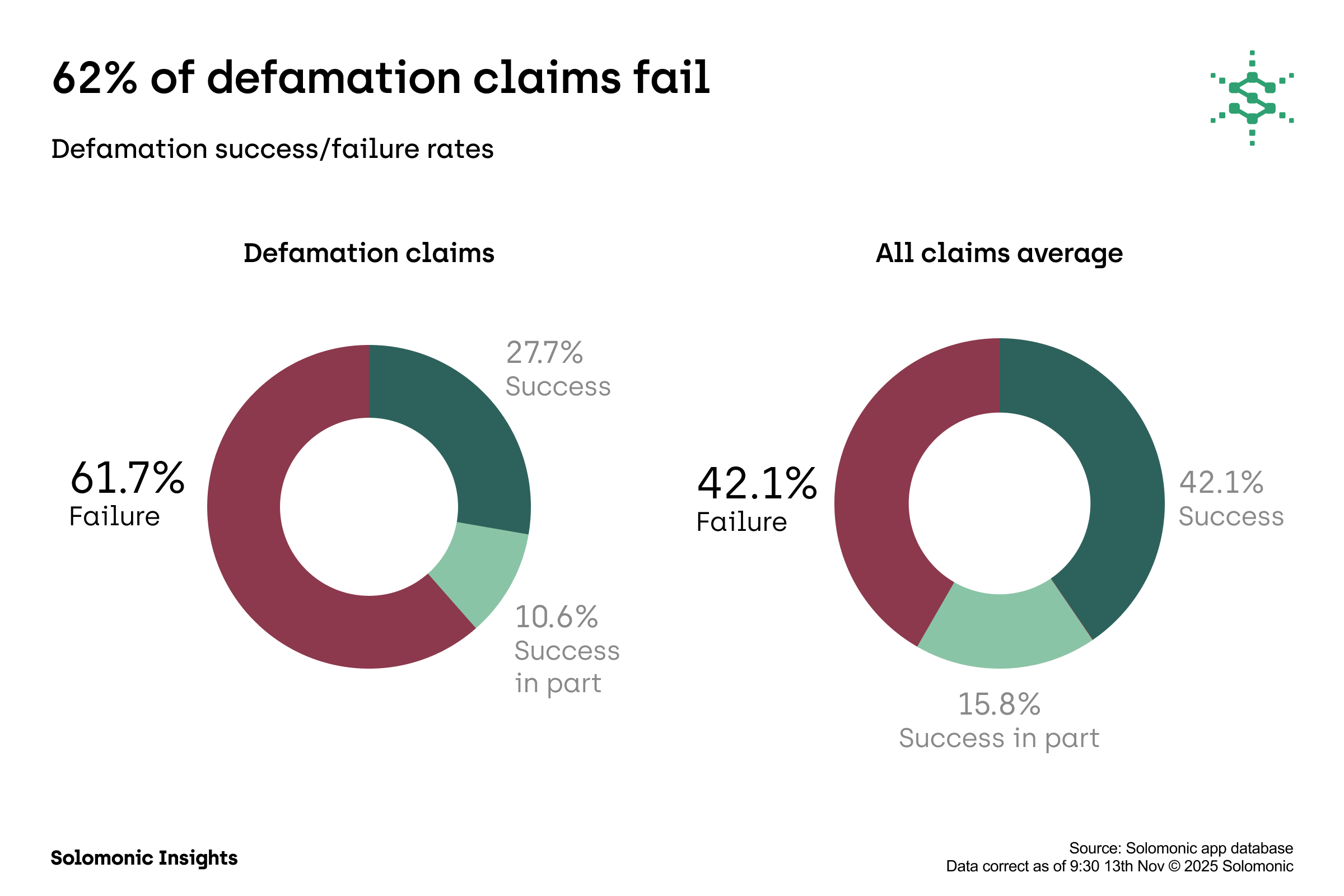BBC most frequently sued UK broadcaster in the High Court
With a multi-billion-pound defamation case looming over the BBC, Solomonic data shows that fewer than 50 High Court defamation cases have gone all the way to trial. However, these cases are notoriously difficult to prove, with a failure rate of around 62%
On November 10th 2025, US President Donald Trump threatened to file a $1 billion legal action against the BBC over an edited clip of his January 6th 2021 speech that featured in a Panorama documentary last year. Despite the broadcaster issuing an apology, Trump increased the amount he might sue for to as much as $5 billion. Having previously pursued claims against US media outlets over their coverage of him, Trump may now be adding the BBC to that list.
In light of this, a Solomonic analysis examined all High Court claims issued against some of the UK’s major television broadcasters in recent years. The data shows that the BBC has faced the highest number of actions – nearly twice as many as the next most challenged network, Channel 5. In 2021 alone, ten claims were filed against the BBC – four of which were defamation-related. Since 2020, eight actions brought against the broadcaster have involved allegations of defamation.
Other broadcasters and media outlets have also faced defamation challenges in recent years. Channel 4, for example, spent two years defending a 2022 claim from Dyson Technology, which alleged its coverage implied the company exploited workers in Malaysia. The claim was later abandoned by Dyson.
However, some claimants have been successful. Retired Metropolitan Police officer Simon Crick sued Sky after they falsely accused him of professional misconduct, which caused significant reputational harm and was a contributing factor to his early retirement. Sky later retracted the statement, issued a public apology and agreed to pay damages and legal costs.
The BBC faced a defamation claim from former Georgian Defence Minister David Kezerashvili over a 2023 documentary alleging his involvement in a financial fraud scheme. Under settlement agreements, the BBC withdrew publications related to the allegations and agreed to reimburse Mr Kezerashvili’s legal costs.
Trump has indicated that any eventual litigation would likely be filed in Florida, rather than in the UK (where the incident has passed the limitation period). However, had he brought a claim in the UK within this period, the data suggests his chances of success would likely have been low.
Less than 50 defamation cases have gone all the way to trial. These claims are notoriously difficult to prove, with a failure rate of around 62%, making them approximately 47% more likely to fail than the average High Court civil claim. Securing an award for damages is equally challenging due to the burden of proof required and the need to demonstrate serious reputational harm.
If you would like to learn more about Solomonic’s leading data and analytics, please get in touch for a confidential introduction to the platform.


